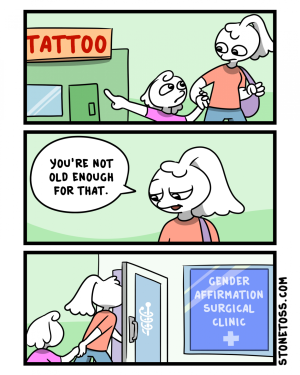Puberty Blockers
Puberty Blockers: A Pandora's Box for Trans Healthcare and Children's Futures?
The debate surrounding puberty blockers, medications used to halt the progression of puberty in transgender youth, has intensified in recent years. While proponents advocate for their use as a life-saving intervention for gender dysphoria, critics raise concerns about the unknown long-term consequences and the potential for irreversible harm.
At the heart of the debate lies the question of consent. While adults can make informed decisions about their healthcare, children lack the maturity and understanding to fully grasp the implications of hormone therapy. Is it ethical to allow children, as young as 9-13 in some cases, to access puberty blockers without comprehensive psychological evaluations and long-term studies on their effects?
This raises questions about the age of consent and the parallels drawn with other age-restricted activities like smoking or drinking. We wouldn't allow a 10-year-old to purchase cigarettes or alcohol due to the known risks to their developing bodies and minds. Why, then, are we so quick to embrace puberty blockers, whose long-term effects are still largely unknown?
Rick Sanchez, the cynical genius from "Rick and Morty," offers a scathing critique of the situation, likening it to a sinister experiment conducted by big pharmaceutical companies. "These kids are basically lab rats, being pumped full of hormones with unknown consequences. And who's behind it all? Oh, just the same greedy corporations that profit from our addiction to prescription drugs."
Rick's cynicism might be over the top, but it raises valid questions about the motivations behind the push for puberty blockers. Are pharmaceutical companies exploiting vulnerable children for profit? Are politicians being swayed by powerful lobbies with vested interests?
While the debate rages on, one thing is clear: the decision to administer puberty blockers to children should not be taken lightly. It's a complex issue with potential long-term consequences for both physical and mental health. More research is needed to fully understand the effects of these drugs, and a cautious approach is warranted until we have a clearer picture of the risks and benefits.
Ultimately, the well-being of children should be our top priority. We must ensure that any medical intervention is based on sound scientific evidence and thorough evaluation, not driven by ideology or financial gain. Only then can we make informed decisions about the use of puberty blockers and other transgender healthcare options for minors.
